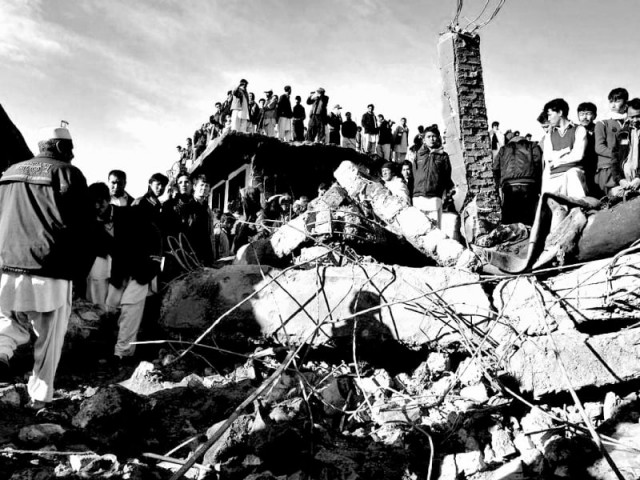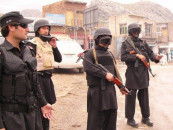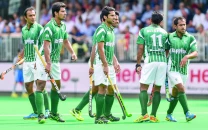US State Department Country Report: Pakistan pummeled by terror with ‘worrisome’ sectarian trend
Report highlights the country’s loss but criticises government for ignoring safe havens.

Report highlights the country’s loss but criticises government for ignoring safe havens. PHOTO: FILE
Pakistan continued to suffer from significant and deadly terrorist attacks, including a dangerous upward trend in sectarian violence, according to the US Department of State’s Bureau of Counterterrorism Country Reports 2013.
In its South and Central Asia Overview chapter, it claims that South Asia remained the front line in the battle against terrorism in 2013, adding that Pakistan and Afghanistan continued to experience most of the aggressive attacks in the region.
The report manages to sum up the horror Pakistan faced: “Terrorists organised armed assaults on police stations, judicial centres, border check posts, military convoys, and polio vaccination teams. Terrorists plotted against and attacked judges, police officers, lawyers, intelligence officers, and elected officials.” A staggering 1,025 civilians and more than 475 security forces personnel lost their lives that year as the country was pummeled with terrorist-related incidents.

Terrorists also assassinated a high-ranking army general in the tribal areas – GOC Swat Major General Sanaullah Khan – Karachi top cop Chaudhry Aslam, and the then-president Asif Ali Zardari’s chief of security, Bilal Sheikh.
Meanwhile, Karachi has a special mention, especially the fact that militant groups have amassed on the city’s outskirts. The State Department writes that Karachi was a matter of grave concern for the president, prime minister, Supreme Court and law enforcement officials.
Many of the terror-related incidents took place during the months leading up to the May 11 national elections, where terrorists attacked and killed political party workers and candidates, bombed political rallies, and, after the elections, killed newly elected and appointed officials.
Counterterrorism efforts
The report, to a certain extent, commends Pakistan’s efforts to curb terrorism. “Pakistan’s government is in the process of implementing four significant laws passed in 2013: the National Counterterrorism Authority Act, the Fair Trial Act, amendments to the Antiterrorism Act of 1997, and the Protection of Pakistan Ordinance of 2013 (PPO),” it mentions.

But there is a caveat: the judiciary moved slowly in processing terrorism and other criminal cases despite the government making use of reinforced counterterrorism legislation.
Meanwhile, Pakistan’s regional and multilateral efforts were appreciated, as the country “actively participated in counterterrorism efforts in both regional and international venues”. The country is an active member of the Global Counterterrorism Forum (GCTF), it participated in SAARC and UN Security Council meetings on counterterrorism and sanctions.
Criticism
However, Pakistan was blamed for ‘still not doing enough’ to curb terrorist activities taking place “from safe havens”. Even though the entire chapter of the report is on South and Central Asia, Pakistan was mentioned at least 78 times, even under the India and Afghanistan sub-sections of the chapter.
“In 2013, Indian sources continued to attribute violence and deaths in Jammu and Kashmir to transnational terrorist groups that India alleges are backed by Pakistan” was one of the many accusations.
The State Department does acknowledge that the Pakistani military undertook operations against groups that conducted attacks within Pakistan such as the TTP, “but did not take action against other groups such as Lashkar-e-Tayyiba (LeT)”, Afghan Taliban and the Haqqani network leadership.
Major armed combat tactics used in Pakistan in 2013
• remote-controlled improvised explosive devices (IEDs)
• vehicle-borne IEDs
• suicide bombers (including females)
• targeted assassinations
• rocket-propelled grenades
Published in The Express Tribune, May 2nd, 2014.



















COMMENTS
Comments are moderated and generally will be posted if they are on-topic and not abusive.
For more information, please see our Comments FAQ